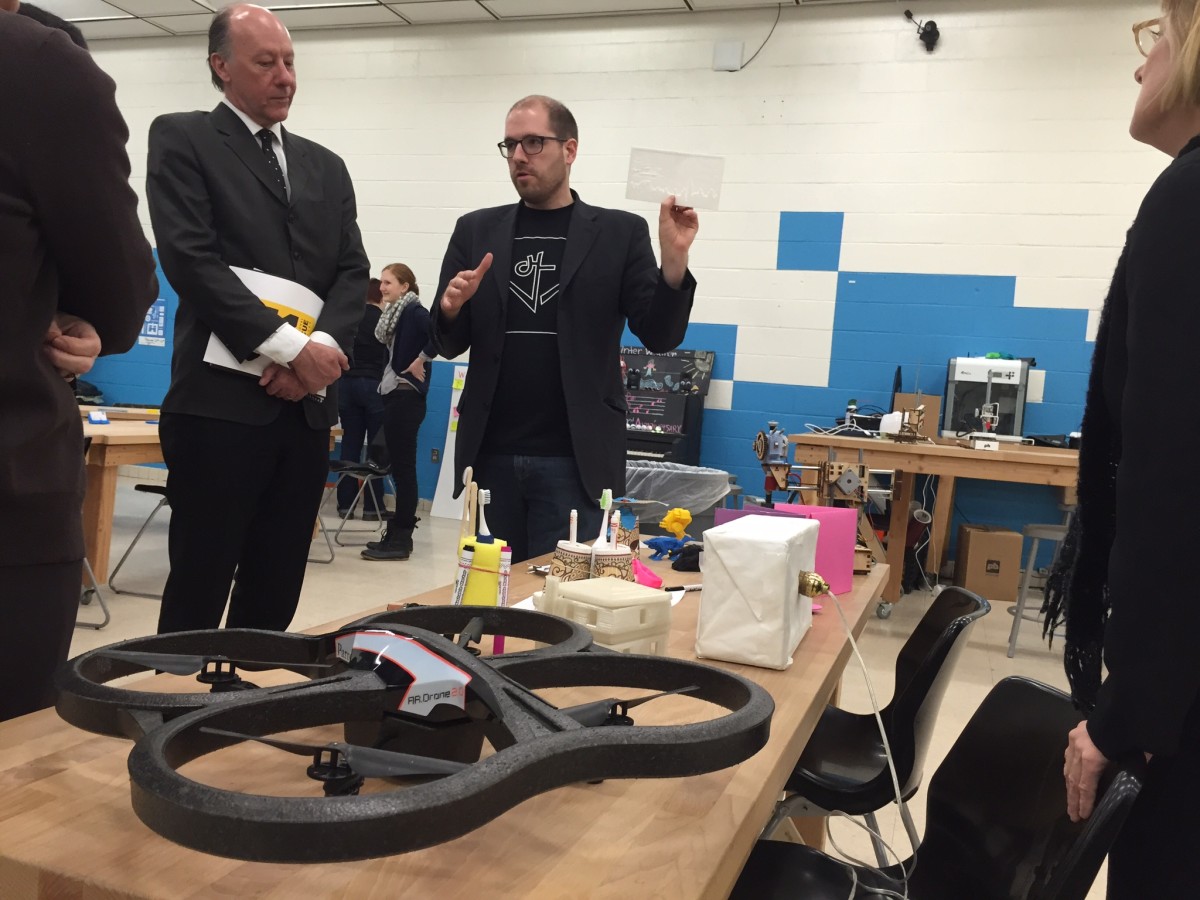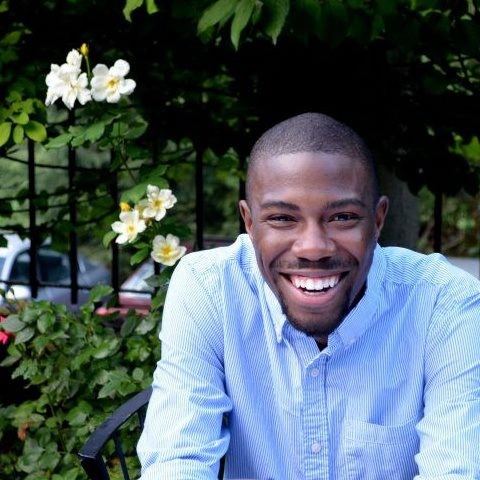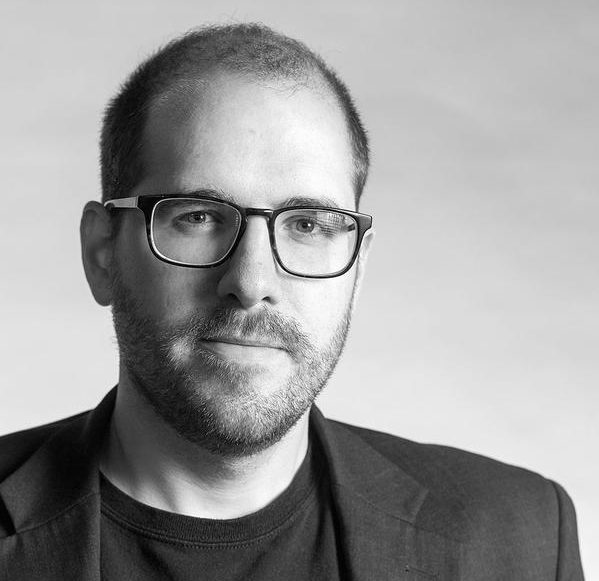The tech community of Baltimore intertwines more and more with the fabric of city government and the future of the city’s youth every day.
The latest sign was Mayor Brandon Scott’s appointment of Andrew Coy, executive director of the Digital Harbor Foundation, to the City of Baltimore’s Board of School Commissioners last week.
The 10-person, all-mayor-appointed school board oversees the operations of a school district with a $1.6 billion budget and 77,000 students. In the fall, when the general election is done, the school board will also have elected members on the school board for the first time. If frontrunners Ashley Esposito and April Christina Curley win, that will put three people with STEM and tech backgrounds on the school board. It would be a marked pivot toward a more tech-conscious school board.
It was Coy’s experience as a former teacher and nonprofit executive, as well as his work with President Barack Obama’s administration as a senior advisor to the White House’s Office of Science and Technology Policy, that made him stand out to Mayor Scott. He replaces Morgan State University instructor Michelle Bondima, whose term ended in June.
The mayor had the opportunity to fill two positions on the school board, but at present, he chose to only appoint Coy. The news came a few weeks after the City named the Digital Harbor Foundation among various nonprofit recipients of American Rescue Plan Act funds.
Technical.ly chatted with Coy about his plans for the first 100 days in his new role, similar to our interview with former broadband and digital equity director Jason Hardebeck when he first got his role.
This interview has been edited for length and clarity.

Andrew Coy (right) shows a 3D-printed product (and a drone) to then-Acting Assistant US Education Secretary Johan Uvin in 2015. (Technical.ly photo)
Technical.ly: How will the school board position interact with your role at the Digital Harbor Foundation?
Andrew Coy: So there obviously is an important process for any sort of position like this — a school board or otherwise — of both disclosure and recusal.
So if there’s anything that would be related in any sort of way, I’ll need to recuse myself and not be involved in any decision, vote or otherwise.
Part of what is looked for, though, in serving in these positions, is somebody who has relevant experience. so you kinda have to balance those two.
Do you see yourself, to that effect, taking a step back from the Digital Harbor Foundation?
No, no.
The school board, from my understanding, being on the outside of it previously, is a lot of work. [But] it is not a full-time job. School board members are not compensated in Baltimore City. It is a volunteer capacity.
So I’m certainly not stepping back from my role at Digital Harbor Foundation.
What are your plans for the school board seat? What do you envision? What’re your plans for the first 100 days?
I think the first thing that I’m going to be focused on is spending time listening. The school board is a very unique sort of role and position in our community. Schools are at the heart of neighborhoods. Lots of individuals are doing really important work in the school system, including Dr. Sonja Brookins Santelises [CEO of Baltimore City Public Schools], her leadership team and other school board members.
There’s a lot that I have to learn and a lot that I need to listen to from community members. Frankly, the folks that I’m most interested in giving an ear to are the students themselves.
What will be your biggest challenge as a new member of the school board?
I think the biggest challenges that we’re facing right now, in [our] community and for our young people, are mental health and economic opportunity. I think those two things really do underscore a lot [of issues] and manifest themselves in a lot of different ways.
COVID, in particular, was incredibly hard from a mental health perspective for young people. I remember back when we had the COVID slam. I asked the young people that were working on these projects — this is December 2020, I asked them: How many of them had made a new friend this school year?
None of them said they had made new friends. So much of their interactions were contained to, you know, they didn’t have hallway time.
They weren’t physically in school, so they didn’t have the opportunity to bump into somebody, just see them in multiple classes and make friendships that happen in between classes. That has had a lingering sort of impact.
I think the other aspect of economic opportunity [is that] it’s absolutely essential for young people to see the pathway for themselves. Where they want to go and how they want to contribute and give, and have employment and jobs that [are] really meaningful to them.
Those two things, I feel like, are so essential for us in community. And schools sit at the heart of those opportunities. [Schools] aren’t alone in contributing positively to those, but they certainly have an outsized role and opportunity to have a positive influence there.
Donte Kirby is a 2020-2022 corps member for Report for America, an initiative of The Groundtruth Project that pairs young journalists with local newsrooms. This position is supported by the Robert W. Deutsch Foundation.Before you go...
Please consider supporting Technical.ly to keep our independent journalism strong. Unlike most business-focused media outlets, we don’t have a paywall. Instead, we count on your personal and organizational support.
3 ways to support our work:- Contribute to the Journalism Fund. Charitable giving ensures our information remains free and accessible for residents to discover workforce programs and entrepreneurship pathways. This includes philanthropic grants and individual tax-deductible donations from readers like you.
- Use our Preferred Partners. Our directory of vetted providers offers high-quality recommendations for services our readers need, and each referral supports our journalism.
- Use our services. If you need entrepreneurs and tech leaders to buy your services, are seeking technologists to hire or want more professionals to know about your ecosystem, Technical.ly has the biggest and most engaged audience in the mid-Atlantic. We help companies tell their stories and answer big questions to meet and serve our community.
Join our growing Slack community
Join 5,000 tech professionals and entrepreneurs in our community Slack today!

The person charged in the UnitedHealthcare CEO shooting had a ton of tech connections

The looming TikTok ban doesn’t strike financial fear into the hearts of creators — it’s community they’re worried about

Where are the country’s most vibrant tech and startup communities?



